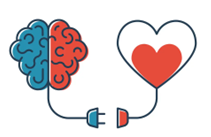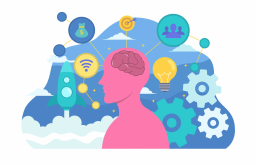Pragna Patlola
01/04/25
IntroductionEmotional intelligence (EI) refers to the ability to manage, control, and understand your own emotions as well as that of others. Those with a higher EI often have better relationships, state of mental health, and are overall more successful in their careers. In the leadership context, EI plays an incredibly important role in determining your effectiveness more so even than traditional IQ (Intelligence Quotient) for leadership.

People in leadership roles with a high emotional intelligence have a higher effectiveness in their management. Areas such as self-awareness, self-regulation, motivations, and social skills are among the aspects which are heightened in people with a strong EI.
Self-Awareness Self-Awareness is the ability to recognize one's own emotions, motivations, strengths, and weaknesses. People who are self aware are able to assess their reactions objectively utilizing their decisions and observations to ground themselves. This leads to more stable leadership and reduces situations in which they have poor emotional reactions under high pressure situations.
Self-Regulation Self-Regulation is the ability to assess and control your impulses and emotions. Those strong in Self-Regulation refrain from making rash or impulsive decisions based on potential emotional outbursts. This ability procures a steady and predictable environment which fosters trust and credibility within one's team.
Motivations Motivation is dedication for your tasks and a commitment to long-term goals, as opposed to being driven by external rewards. Leaders with strong motivation are often more driven and have the ability to inspire the same passion in others. This allows people to focus on the bigger picture leading them to push employees to a larger collective goal to the overall success of a company.
Social Skills Social Skills involves the ability to manage and maintain relationships as well as social connections. This includes the ability to resolve conflicts, spread positive influence, and clear communication. Leadership demands leaders communicate with and manage a large variety of people, strong social skills allow them to effectively communicate and motivate.

Many elements of one's thinking process are affected with the development of their emotional intelligence. Implementing these elements play a crucial part in determining one's leadership style and effectiveness. The most prominent aspects of leadership that are heightened include improved communication, conflict resolutions, enhanced decision making and leadership adaptability.

Improved Communication Those who possess high EI are able to communicate successfully, using not only words but also non-verbal cues such, tone of voice, and ability to understand emotional dynamics between a team. This assists in the creation of an open, transparent, and collaborative environment.
Conflict Resolution EI also helps leaders resolve conflicts in a manageable and healthy manner. The understanding of the emotions of others aspects of EI comes into play when resolving conflicts as leaders are able to comprehend the emotions of all parties. Using these observations people may de-escalate potentially tense situations and create a mutually beneficial solution.
Enhanced Decision Making High EI fosters a more balanced and thoughtful decision making process. Elevated EI leads to a better understanding of how emotions may play into decision making allowing for active separation of emotions to create an unbiased decision.
Leadership Adaptability Leaders with high EI are able to adapt their leadership style to better suit various situations. They take into account the emotional circumstances of the instance and adjust their approach to better suit the needs of their team, project, or company.
Let's Delve Deeper: EI Training for Leaders: Can Emotional Intelligence be Developed Through Training? Studies have shown that, similarly to IQ, IE is not a set personality trait but rather one that can be trained, adapted, and improved. Many programs are being integrated into companies' who work to improve IE in their employees particularly for those in leadership positions as they seek the improved qualities as mentioned above. These programs work to equip employees with the skills to recognize, manage and control their own emotions along with others emotions. Common methods utilized in emotional intelligence training programs include self-assessment tools which identify strengths and areas of improvement, feedback from peers are also shared to share insight on how one’s emotions impact others. Additionally, role-playing exercises are incorporated to practice emotional regulation skills in various situations, these exercises go hand in hand with mindfulness practices which cultivate self-awareness through focused attention.

To conclude, emotional intelligence is truly essential in effective leadership roles. Leaders who cultivate EI skills, whether through training or naturally, are more capable of navigating through complex emotional landscapes, assembling strong teams, and making thoughtful decisions. Implementing emotional intelligence offers valuable insights when working through both the technical and social aspects required within leadership roles.